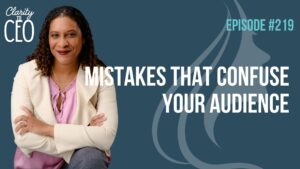Each business should have overall company objectives and goals. Goals that are for the betterment of the entire business and not just focused on one singular department. However, from those high-level goals, you get the foundation and starting point for your departmental goals. It would be counterintuitive for your marketing department to have a set of goals that don’t align with your high-level goals. That would result in marketing campaigns pushing different content that doesn’t help meet the organization’s goals. Here we want to avoid that and set ways to ensure our marketing goals are helping to accomplish the company’s main objectives this year.
Today’s message is centered on how to set marketing goals that both SMART and are aligned with your overall company objectives. We will also review common marketing goals you can adopt to help reach your organization’s SMART goals.
Know your Company Goals First
A lot of organizations struggle with marketing because they don’t know what their goals are. If you want to be successful in the future, you must have a goal and work towards it. I can’t stress enough that any marketing campaigns and strategies you implement should always align with the company’s overall objectives. Marketing shouldn’t be just entertainment, it should fully support meeting the business’s goals.
Creating Your Marketing Goals
Now the question is, how do you create marketing goals that support your company goals? Here are three steps to make this happen.
- Break Down the Goal: During the first message in this series, I explained what SMART goals were
- Determine the Marketing Actions
- Make the Marketing Goal
Example:
Our goal is to open three more locations within Montgomery County in the next 24 months.
- Specific: Open three more locations
- Measure: The measurement would be if they are successfully opened
- Attainable: Do we need additional resources to meet this goal?
- Relevant: does this help the overall strength of the company?
- Time-Bound: Needs to happen within 24 months.
After dissecting the goal into its corresponding SMART segments, we see two areas in question. Do we have enough resources, and will this goal build success for the company? This wouldn’t be a goal for the organization if it weren’t something that would bring great success, so the remaining element would be does the company have the resources to make this happen. If not, that is where we can start to market to the community to build partnerships and gain the funding needed.
The marketing team could now build messages surrounding the goal, focus communication toward critical strategic partners that could help with development, and determine the call to action we want people to take, which could be something like becoming a sponsor.
Taking that all into consideration, I would rewrite this as a marketing goal to say:
Connect with Key Stake Holders to gain 5.5 million dollars in sponsorships over the next 18 months to fund the building of three new locations within Montgomery County.
Foundational Marketing Goals
While you can set many small business marketing goals for your company in 2023, they will all fall into one of these eight main areas.
1. Increase brand awareness
2. Boost brand engagement
3. Rank higher in search results
4. Increase website traffic
5. Generate qualified leads
6. Increase revenue
7. Increase customer value
8. Establish brand authority
These eight marketing goals can go in many different directions to help meet your company goals.














